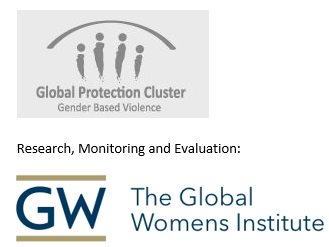- After the programme intervention strategies have been developed and funding has been obtained, the challenge of programme implementation begins. A key to the success of all programmes—whether they are implemented directly through an INGO or through a national/local implementing partner--is ensuring that staff composition and capacity is adequate to meet programme goals and objectives. Several points for consideration regarding staffing issues are outlined below.
- Recruiting and selecting appropriate and capable staff members to work on VAWG programmes is directly linked to the success of the intervention. Through the recruitment process, the community will learn about the organization and the programme, especially when hiring national staff from the local community. It is therefore an opportunity during recruitment processes to develop trust with the community and to show that the organization has integrity, and is fair and transparent in its work (Ward, 2004b, pg. 157).
- The following recommendations identify some potential strategies that can be useful when hiring staff members from the local community to work on VAWG in any setting (excerpted from Ward, 2004b, pg. 157). These recommendations should apply to INGOs hiring staff as well as local implementing partners.
- Ensure that all community members have access to recruitment information and have the opportunity to apply for the position(s). Consider involving community leaders in gathering applications and helping get the word out. However, it is important to not rely solely on the leaders to find qualified candidates.
- Provide clear information that describes the job, the required qualifications, the method for application, the location for delivering applications, and the deadline for submitting applications. Translating the information into the local language(s) will provide a wider distribution.
- Consider using a variety of methods to find qualified candidates, specifically targeting areas where women can access. For example:
- Post flyers around the community: schools, NGO offices, market areas, community centers, churches/ mosques, skills training centers, etc.
- Meet with leaders of the various groups and clubs in the camp, and give them copies of the flyer so they can inform their group.
- Give copies of the flyers to implementing partners and other national programmes so they can inform their staff.
- Depending on the position, it is likely that there will be many submitted applications. It is therefore also important to use objective measures to choose the successful candidate(s), such as checking for qualifications and using written tests. Based on these initial results, consider an interview panel that includes respected local leaders or staff members and might include representatives all ethnic groups and languages.
- Use objective measures for first screening applications such as checking for qualifications.
- Use objective measures for second screening of applicants (written test) (Ward, 2004b, pg. 157).
